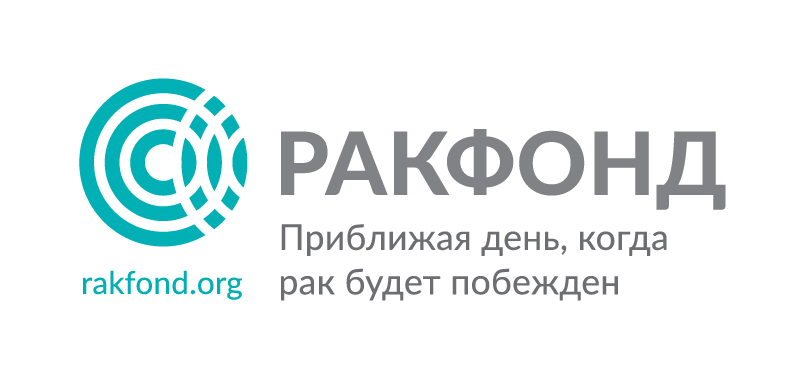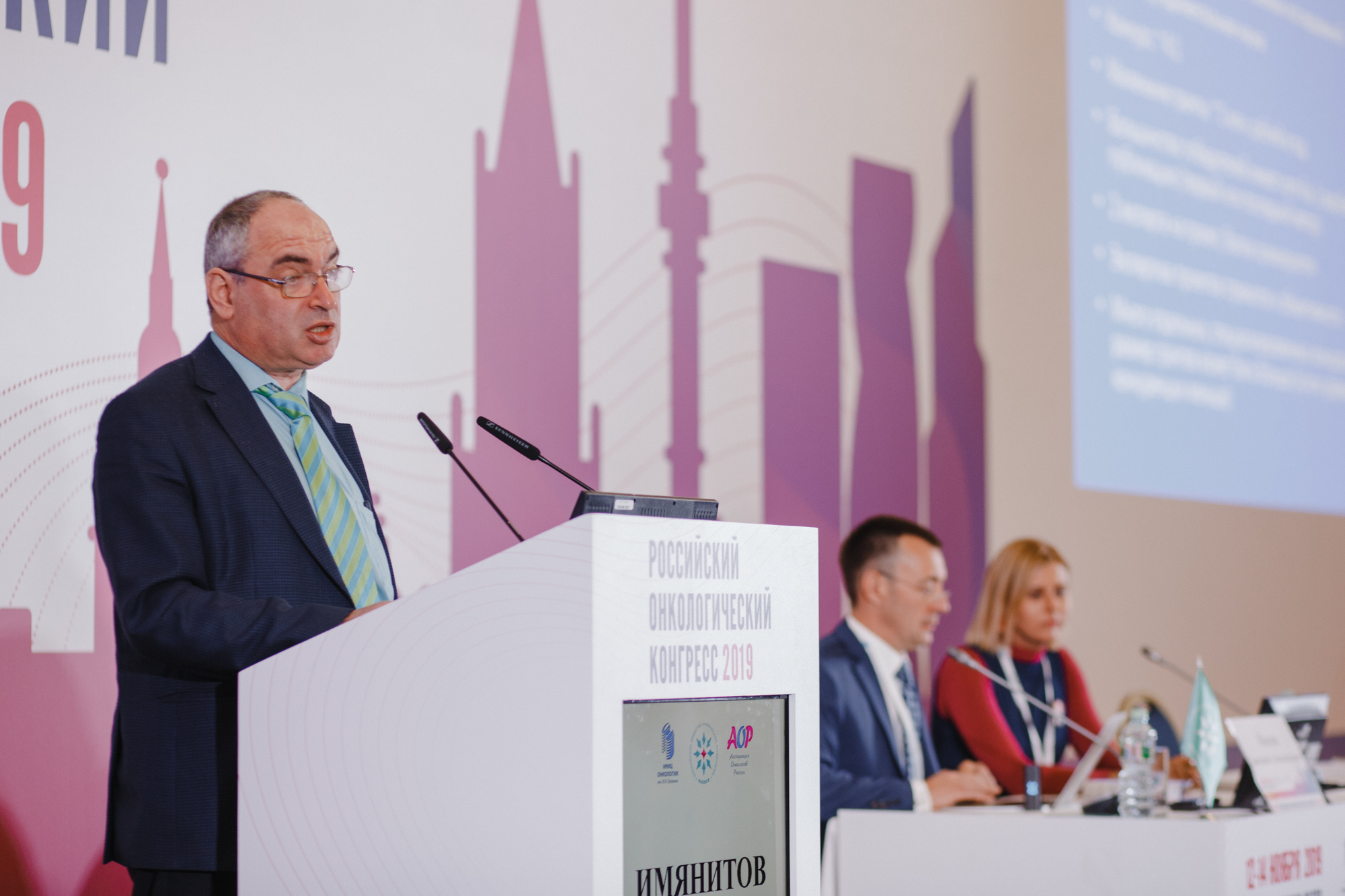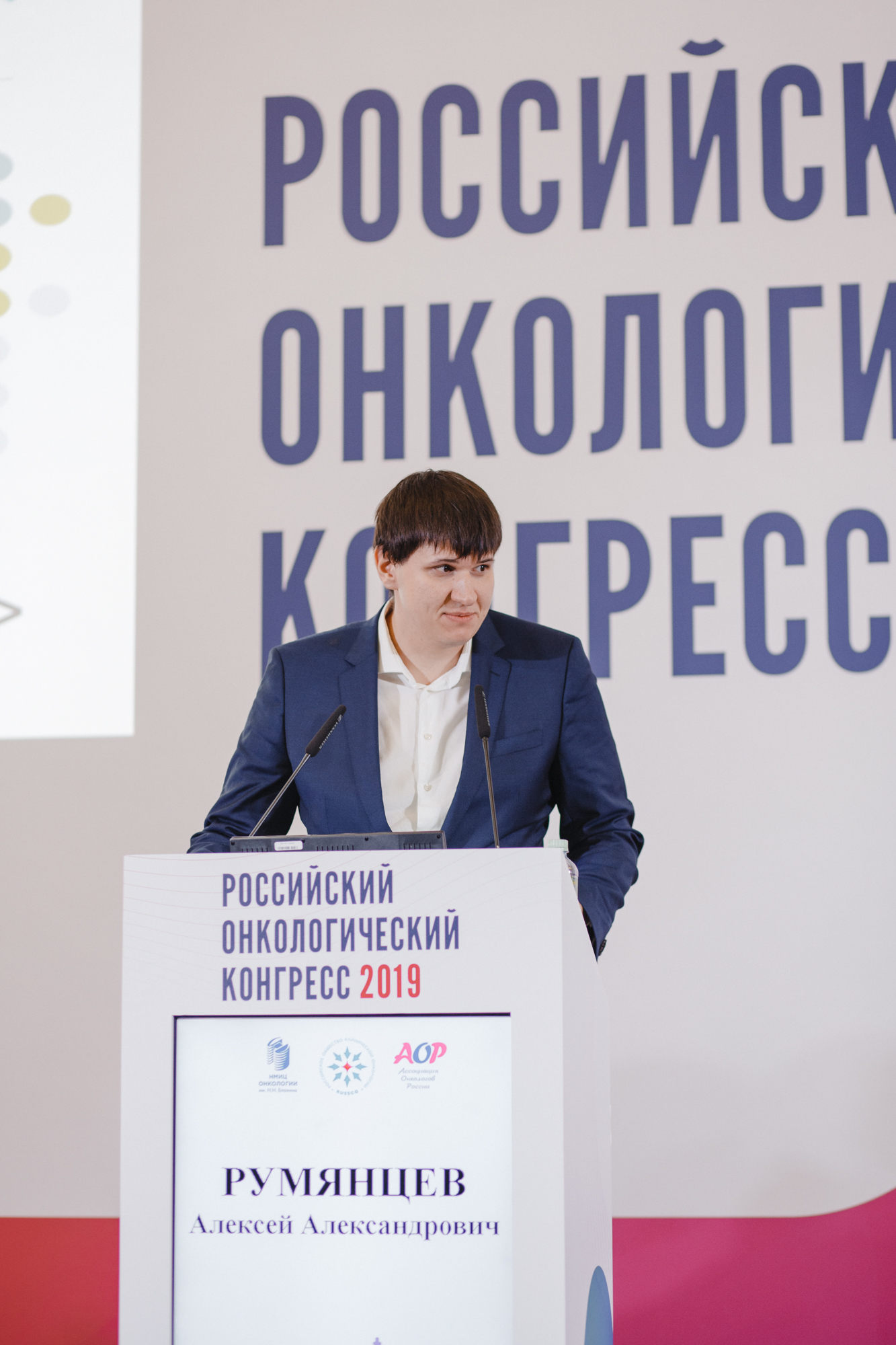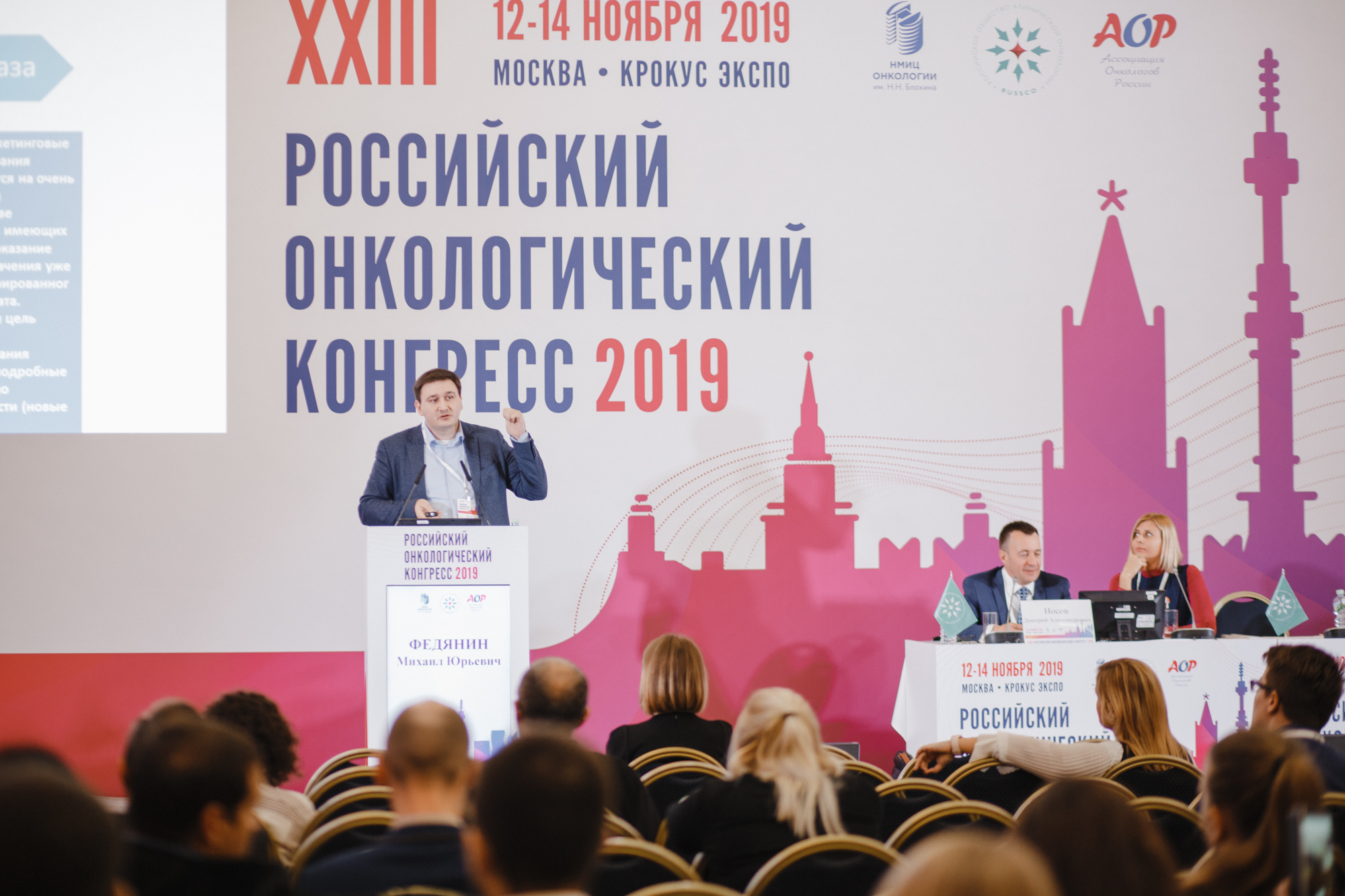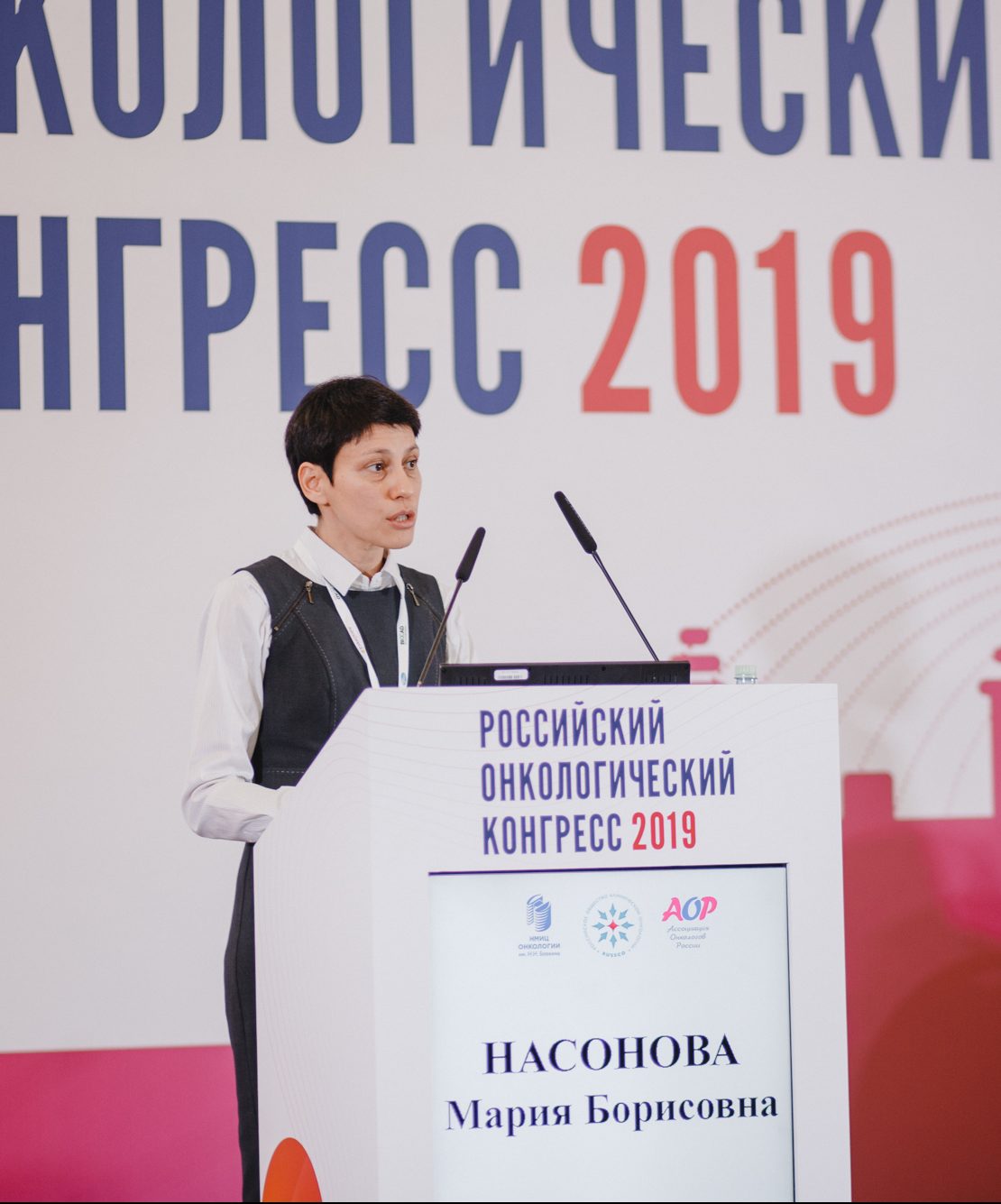HOW TO INITIATE YOUR OWN CLINICAL STUDY
This year, a joint workshop by RUSSCO and RakFond within the XXIII Russian Oncology Congress was dedicated to conducting clinical trials in oncology. Leading experts shared their experiences and discussed examples of what is needed to initiate your own clinical study.
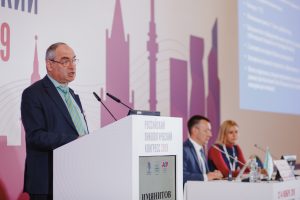
Professor Evgeny Imyanitov (N.N. Petrov National Medical Research Center of Oncology, St. Petersburg) opened the workshop with a lecture on how to secure funding for the study and prepare a grant application. Among the research funding organizations, he named the Russian Foundation for Basic Research (RFBR) with grant funding of about 1 million rubles, the Russian Science Foundation (RSF) with an average funding of 6 million rubles per year. Professor Imyanitov emphasized the high level of scientific expertise and transparency of procedures in the RSF. In addition to
scientific foundations, one can take advantage of special government programs and support from the Skolkovo Foundation for product development. Professor Imyanitov recommended that preparation for submitting a grant application be started in advance (at least a month before the deadline), making sure that the proposed study meets the requirements of the funding program. It is extremely important to pay attention not only to the content, but also to the accurate design, as well as the rationale for the budget. He considers the best first step for a young researcher is getting experience in a successful scientific group in which one can learn and prepare for independent work.

The topic of the clinical study preparation was continued by Dr. Alexey Rumyantsev (N.N. Blokhin National Medical Research Center for Oncology, Moscow), who spoke on how to prepare a study protocol and to take everything into account. As a reminder, Alexey was the winner of the first competition for a research grant from RUSSCO and
the RakFond for young scientists and early career investigators and, having successfully completed the study, presented its results at the annual largest meeting of the American Society of Clinical Oncology (ASCO).
Alexey examined in detail the structure of the standard protocol – a written description of the planned study and the rationale of its conduct. Among the basic principles for preparing the protocol he mentioned less is more. The rationale of the study should be justified after a thorough analysis of the published papers and based on the experience of other colleagues. It is important to clearly define one main objective and, on its basis, to determine the primary endpoint of the study, accurately describing what and how it will be evaluated: the selected parameter and its significance (the reasonable use of surrogate, markers of efficacy), time and evaluation criteria. Equally important is the definition of inclusion and exclusion criteria. Too strict inclusion criteria are one of the main barriers to enroll patients to the study. The design of the study should include a detailed but understandable patient’s journey – from the moment of signing the consent until the completion of the study.
An increase in design complexity leads to an increase in the number of errors and the cost of research. The choice of control group in cancer research is determined mainly by the current standard of treatment. Placebo is possible in case there are no adequate therapeutic options. When planning, one must not forget that blinded research reduces
the likelihood of errors.
A useful clinical trial protocol template:
https://ctep.cancer.gov/protocolDevelopment/docs/CTEP_Generic_Protocol_Template_for_Cancer_Treatment_Trial.docx.
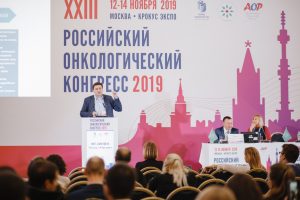
Dr. Mikhail Fedyanin (N.N. Blokhin National Medical Research Center for Oncology, Moscow) continued with a more detailed discussion of the statistical design. Statistics is necessary during all steps of the study – from planning to data analysis. It all starts with a statistical hypothesis, which is necessary to answer the key question of the study: is the proposed treatment different from the control (better or not worse). The choice of endpoints depends on the objectives of the study. The survival of cancer patients (overall survival) is generally accepted. In cases where it is necessary to quickly obtain a result, it is possible to apply surrogate criteria, with a proven correlation with generally
accepted criteria:
- the frequency of the decrease in the stage of the disease;
- objective response rate;
- 6-month or one-year progression-free survival;
- one-year overall survival.
Statistical processing of data begins with the choice of a study design (superiority vs. non-inferiority vs. equivalence), a zero hypothesis (H 0 demonstrates the absence of differences between the compared groups) and the alternative hypothesis (H a is the opposite: there is a difference between the compared groups), and the accuracy of the
estimate and statistical sensitivity (type I and II errors). The sample size (the number of patients in the study) is determined by the estimated power of the effect, the structure and type of the study, the error of the first and second kind, and the statistical criterion selected to compare the studied parameters. Conducting studies on a small number of patients with low power makes them unethical. In studies with a large number of patients, it is necessary to evaluate the clinical significance, as well.
During data processing, different approaches are used to select a population for evaluation (all patients who received at least one dose of the drug – intention to treat population, or a limited population, per protocol). It is important that in the subgroup analysis, the more factors are included, the higher the probability of achieving false
positive results is.
Links to additional materials:
1. The choice of the study endpoints:
https://www.fda.gov/downloads/Drugs/Guidances/ucm071590.pdf
2. Tool for randomization: https://sealedenvelope.com/simple-randomiser/v1/lists
3. Statistical packages for calculating samples: https://www.swogstat.org/
4. Two-stage designs: http://cancer.unc.edu/biostatistics/program/ivanova/SimonsTwoStageDesign.aspx
5. Statistical Principles for Clinical Trials (FDA): https://www.fda.gov/regulatory-information/search-fda-guidance-documents/e9-statistical-principles-clinical-trials
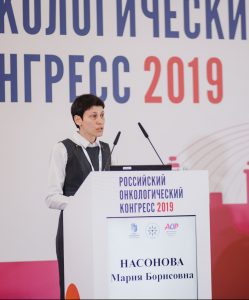
A special topic of the workshop was a presentation by Maria Nassonova on the legal aspects for organizing and conducting investigator-initiated clinical trials. The main aspects of her presentation are reflected in a brochure published specially for the workshop. Please read the electronic version on our website: Russian only.
As the chairman of the session, Professor Dmitry Nosov, noted that the full audience in the morning of the first day of the congress confirmed the high interest in the topic of the workshop, which, hopefully, will translate into the increase in the number of promising clinical trials initiated by investigators in oncology clinics in Russia.
